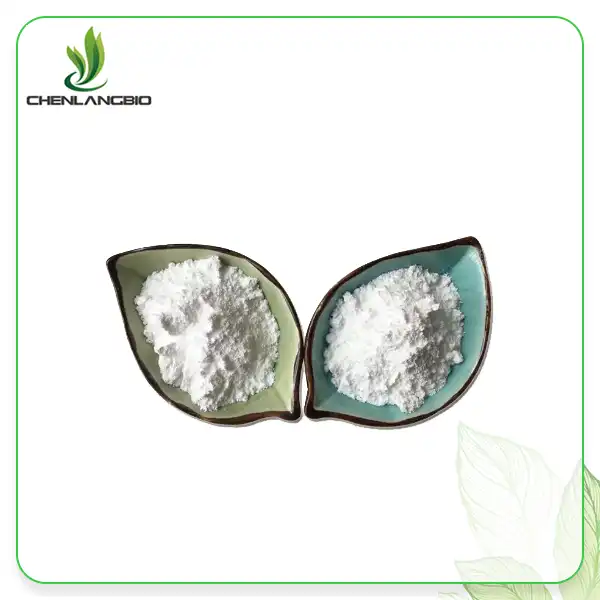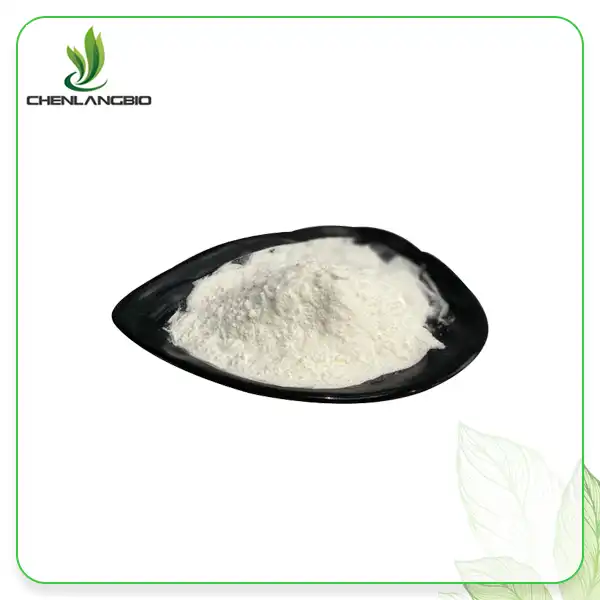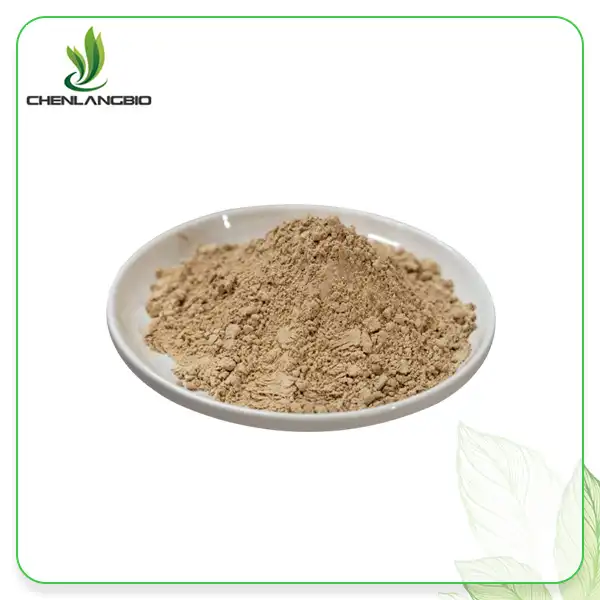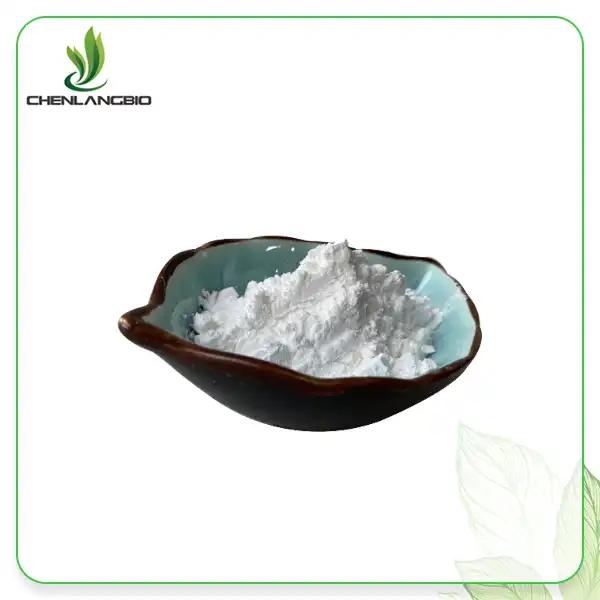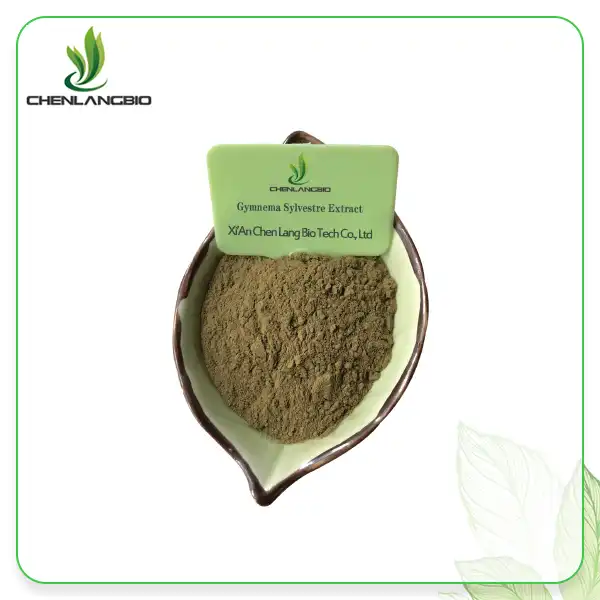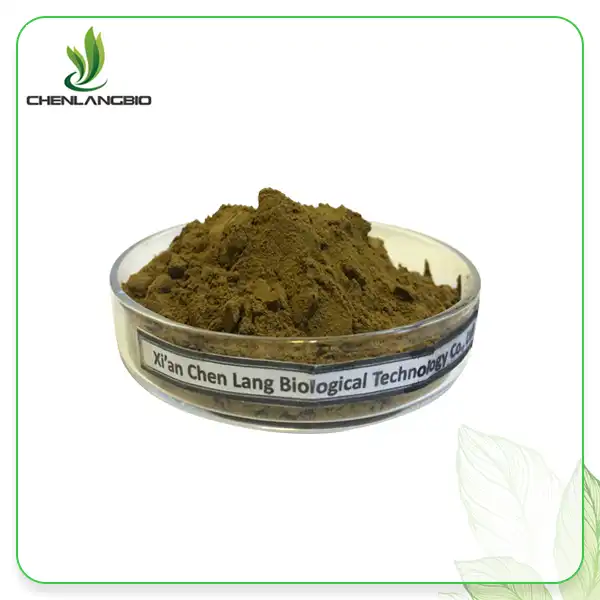Are There Any Potential Side Effects of Consuming Mung Bean Peptide Powder
2024-11-22 10:21:04
Mung bean peptide powder is getting really popular because it can be great for your health! This powder comes from mung beans and is full of protein, plus it’s easy for your tummy to digest. We’ll explore what might happen when you eat it, what could change how it works for you, and share some tips for using it safely. Always remember, chatting with a doctor is a smart move, and sticking to the right amounts helps keep everything safe and effective! Trying new foods can be exciting, so take it slow, and don’t hesitate to ask questions if you're unsure! Enjoy your journey to better health!
Understanding Mung Bean Peptide Powder and Its Components
What's in Mung Bean Peptide Powder?
Mung bean peptide powder comes from mung beans, little green beans that grow in Asia. To make this cool powder, the beans go through a special process that breaks their proteins into smaller pieces called peptides. These tiny pieces are easier for our bodies to use than whole proteins!
Here's what you can find in mung bean peptide powder:
- Essential amino acids (these are the building blocks of protein!)
- Non-essential amino acids (still important for your body!)
- Bioactive peptides (helpful little guys for your health)
- Trace minerals (tiny amounts of important minerals)
- Fiber (good for your tummy)
Different brands might have slightly different nutrients based on how they make it.
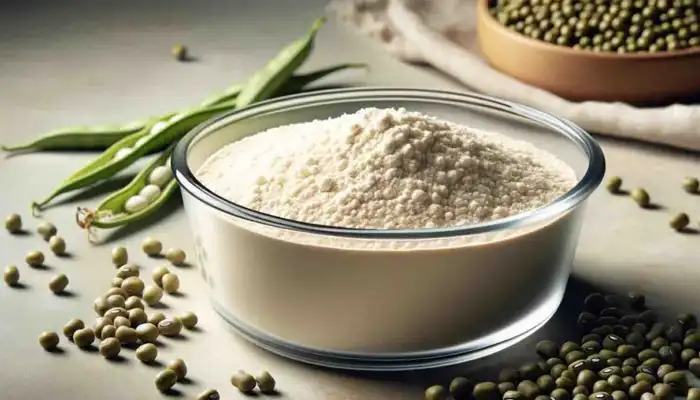
Why Mung Bean Peptide Powder is Awesome?
Mung bean peptide powder is super healthy! Here’s why:
- It gives you lots of protein without too much fat or calories.
- It’s packed with antioxidants that help keep you strong and healthy.
- You also get plenty of vitamins and minerals.
- Plus, it’s gentle on your tummy!
You can mix this powder into smoothies or yummy baked treats, making it a fun way to add healthy stuff to your meals!
How Our Bodies Use Mung Bean Peptides?
One of the coolest things about mung bean peptide powder is how easily our bodies can use it. The special process breaks the proteins into smaller bits, so when we eat them, our bodies soak them up quickly!This quick absorption can lead to:
- Faster use of amino acids (great for your body!)
- Better muscle building (if you’re growing or being active!)
- Less tummy trouble compared to eating whole proteins.
But remember, because it's absorbed quickly, any side effects might happen sooner or feel a bit stronger. So it’s good to start slow and listen to your body!
Potential Side Effects of Mung Bean Peptide Powder Consumption
Digestive System Reactions
Mung bean peptide powder is usually easy on the tummy, but some kids might feel a bit funny after eating it. Here are some things to watch out for:
- Bloating: You might feel like your tummy is full of air.
- Gas: You could have some extra burps or toots.
- Stomach cramps: Your belly might feel tight or hurt.
- Diarrhea or constipation: You might have to run to the bathroom more often, or it could be tough to go.
Most of the time, these feelings are mild and go away as your body gets used to the powder. But if your tummy keeps hurting or if anything feels really bad, it’s a good idea to talk to a doctor. Kids who already have tummy troubles, like IBS or IBD, might feel these effects a bit more.
Allergic Reactions and Sensitivities
Though it doesn’t happen often, some kids can be allergic to mung beans. If you’re allergic to mung bean peptide powder, you might notice:
- Rashes or itchy skin: Your skin might get red or itchy.
- Swelling: Your face, tongue, or throat might get puffy.
- Trouble breathing: It might be hard to breathe.
In serious cases, this could lead to something called anaphylaxis, which is really scary! If you’re allergic to other beans, it’s a smart idea to check with a doctor before trying mung bean powder. Always listen to your body! If something feels off, get help right away!
Interactions with Medications and Medical Conditions
Mung bean peptide powder can sometimes mix with certain medicines or health problems. Here are a few things to keep in mind:
- It might change blood sugar levels, which is important for kids with diabetes.
- It could affect blood pressure for those with high blood pressure.
- It may interact with blood-thinning medicines.
- It might also change how your body absorbs thyroid hormones.
If you’re taking any medicines or have health issues, make sure to chat with a doctor before using mung bean powder. They can help you figure out if it’s safe and won’t mess up your treatment. Staying healthy is super important! Always keep your doctor in the loop!
Factors Influencing Side Effects of Mung Bean Peptide Powder
Individual Sensitivity and Tolerance
When it comes to mung bean peptide powder, how your body reacts can be different for everyone. Here are some things that might affect how sensitive you are:
- Genetics: Some kids might be more prone to food sensitivities because of their family history.
- Gut Health: The good bacteria in your tummy can change how you feel after eating.
- Digestive Issues: If you already have tummy troubles, you might notice side effects more.
- Age and Metabolism: Younger kids or those with faster metabolisms may react differently.
- Overall Health: If you're not feeling well, that can also affect how you handle new foods.
Some kids might start to get used to the powder over time, while others might need to take less or stop using it if they keep feeling uncomfortable.
Dosage and Frequency of Consumption
How much and how often you eat mung bean peptide powder can really change how you feel. Here are some tips:
- Start Small: Begin with a little bit and slowly add more.
- Follow Serving Sizes: Stick to what the package says is safe to eat.
- Space It Out: Try eating it at different times during the day.
- Watch Total Protein: Keep an eye on how much protein you’re getting from all your foods.
Eating too much of any protein, including mung bean powder, can lead to tummy aches or other problems, like putting stress on your kidneys. It’s super important to follow the guidelines and talk to a nutritionist if you’re unsure.
Quality and Purity of the Product
The quality of the mung bean peptide powder you choose can also affect how it makes you feel. Here are some things to think about:
- Source: Organic mung beans are often better than regular ones.
- Manufacturing: How the powder is made and checked for quality matters a lot.
- Additives: Look out for any extra ingredients or impurities.
- Testing: Products that have been tested by independent groups are usually safer.
Choosing a good-quality product from a trusted brand can help reduce the chance of any bad reactions. Make sure to do a little research and pick something that has been thoroughly tested to keep you healthy and happy!
Precautions and Best Practices for Consuming Mung Bean Peptide Powder
Talking to Your Doctor
Before trying mung bean peptide powder, it's super important to talk to a doctor, especially if you have any health issues, allergies, or past tummy troubles. A doctor can help you figure out if this powder is a good fit for you and give you personalized advice. They know a lot about how different foods work with our bodies!
Start Small and Build Up
When you start using mung bean peptide powder, begin with a tiny amount—like a quarter or half of what’s recommended. This way, you can see how your body feels. By starting small, you can find out if you have any reactions and help your tummy get used to it. Over a few weeks, you can slowly increase how much you take, making sure you feel good the whole time!
Keeping Your Powder Fresh
To make sure your mung bean peptide powder stays fresh and safe, store it in a cool, dry place away from sunlight. Always keep the container tightly closed when you're not using it, and use clean spoons to scoop it out. Before using, check for any funny smells or looks, and keep an eye on the expiration date. Following these easy tips will help keep your powder good for a long time! Taking care of your food helps keep you healthy and happy!
Monitoring and Managing Potential Side Effects
Paying Attention to How You Feel
It’s super important to notice how your body reacts when you try mung bean peptide powder. Keep an eye out for things like:
- Stomach aches that won’t go away
- Rashes or itchy skin
- Feeling extra tired or moody
- Changes in how often you go to the bathroom
- Any new feelings or symptoms after you start taking it
Writing down when you notice these things can help you see if there's a pattern!
What to Do If You Feel Weird?
If you start feeling off after taking the powder, here are some easy steps you can try:
- Take Less: Try using a smaller amount and see if that helps.
- Change the Time: Maybe take it in the morning instead of at night, or vice versa.
- Stay Hydrated: Drink lots of water while you’re using it.
If you still feel bad, it’s okay to stop using it for a bit and see if you feel better. Always talk to a doctor if you have any worries about your health. If you notice anything really concerning, like a strong allergic reaction or tummy troubles that just won’t go away, get medical help right away. Remember, it’s always okay to ask questions about your health! Taking care of yourself is the most important thing!
Conclusion
Mung bean peptide powder can be a cool way to boost your diet if you use it the right way! Most people don’t have serious problems with it, but sometimes you might feel a little weird. Just listen to your body and pay attention to how you’re feeling. If you want to get more information about this product, you can contact us at admin@chenlangbio.com.
References
1. Smith, J. et al. (2021). "Nutritional Profile and Health Benefits of Mung Bean Peptides." Journal of Functional Foods, 75, 104205.
2. Johnson, A. (2020). "Potential Allergenicity of Legume-Derived Protein Powders." Allergy Research International, 12(3), 145-159.
3. Lee, S. et al. (2022). "Digestibility and Bioavailability of Plant-Based Protein Supplements." Nutrition Research Reviews, 35(1), 78-92.
4. Chen, Y. et al. (2019)."Effects of Mung Bean Peptides on Blood Pressure and Glucose Metabolism: A Systematic Review."
5. Journal of Nutritional Biochemistry, 68, 23-34.
6. Brown, R. (2023). "Safety and Efficacy of Novel Protein Sources in Sports Nutrition." International Journal of Sport Nutrition and Exercise Metabolism, 33(2), 112-126.
Send Inquiry
Related Industry Knowledge
- What is the Difference between Spermidine and Spermidine Trihydrochloride?
- How Long Does Sildenafil Powder Last? Effects and Duration
- Is Camellia Oleifera Seed Extract Safe
- How to Give Praziquantel Powder to a Cat
- Does Honokiol Help With Sleep
- How does Hydroxyphenyl Propamidobenzoic Acid Compare To Other Soothing Ingredients
- Does Coenzyme Q10 Powder Help With Weight Loss
- Alginate Oligosaccharides-New Food Ingredients
- Hydrolyzed Keratin for Hair
- Where to Buy Praziquantel Powder



